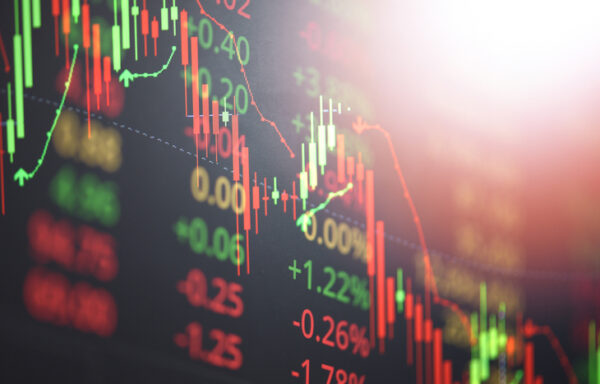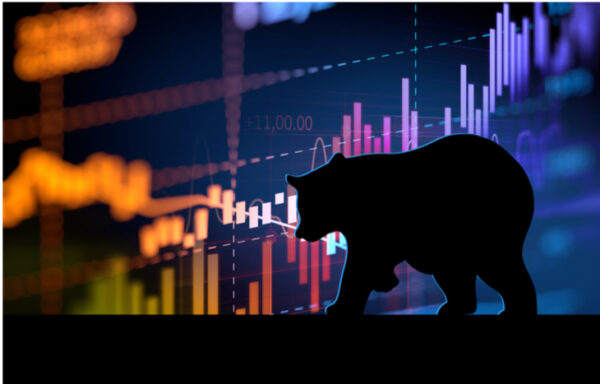Dow 100K… Here We Come!
We’ve got some investing how-to for you this morning.
It’s important. Understand this concept and you’ll not only increase your odds of making a large sum of money in the stock market but also do it with less risk.
We’ll use Oracle (ORCL) as our example.
Here are some key facts about the ho-hum cloud-computing giant…
Its sales have grown by just 10% over the last decade.
Its margins have been virtually flat.
And competition is fierce and growing rapidly.
It’s not the sort of business a textbook would tell us to buy. But shares of the company are up by 80% in the last decade.
It’s another reason we hate textbooks.
The Investor’s Dilemma
But why? Why would a slowly growing company, with subpar products, see its shares nearly double in value… despite sales and earnings remaining flat?
This is the question that countless investors asked over the last decade. And because the textbooks offered the wrong answer, it kept those wary folks on the sidelines of one of the greatest bull markets in history.
Here’s why shares of Oracle rose. It takes just two words.
Share buybacks.
Thanks to the ultra-cheap debt created by our pals at the Fed, the company managed to buy back more than 40% of its shares.
When we do the math, our dusty but trusty abacus tells us the action is responsible for some 70% of the rise in the company’s share price.
In other words, if not for the company dipping into the market to buy its own shares and increase the value of what remains, Oracle would have seen its shares rise by a percentage much closer to its sales and profit growth.
That 70% surge would have been a 10% surge… at best.
So if you made money from Oracle, don’t thank Larry Ellison… Send a card with warm words to Ben Bernanke, Janet Yellen and Jay Powell.
They’re the real drivers of corporate wealth these days.
And here’s the thing… we haven’t seen anything yet.
Free-Money Bonanza!
If you think the oh-so-hated bull market of the last decade was confounding, wait until you see what’s next.
Thanks to the Fed directly buying corporate debt (a perfect example of the slippery slope of quantitative easing), this buyback trend is about to explode higher.
Take Apple (AAPL), for instance.
The super-strong company has more than $100 billion in cash. In a move few other companies could dream about these days, it could pay off all its debt and still have enough cash left over to buy a company the size of Starbucks (SBUX) or Caterpillar (CAT).
The iPhone maker has used a slice of that cash to buy back more than 5% of its shares each year for the past seven years. More than a third of its shares have been taken off the market.
It’s been a tremendous boon for shareholders… especially because revenue and earnings were down last year.
But the action is only going to get hotter.
The Fed has stepped into the game. It just announced the details of its Secondary Market Corporate Credit Facility… which we’ll call the “buyback ATM” for simplicity’s sake.
Through this deal of deals, the Fed will buy the debt of companies like Toyota (TM), AT&T (T) and, of course, Apple at prices the free market would never pay.
It’s stock market alchemy at a scale the world has never seen before.
Apple borrows billions… pays a couple points in interest… and buys back its own shares.
It turns a 2% interest payment into a 5% boost (or more) in share price.
The Fed gets what it wants (a propped-up economy). Apple investors get the closest thing to guaranteed returns the equity market has ever produced. And the stock market continues to zoom, keeping the nation’s economy on life support for that much longer.
We all know it won’t end well.
Some companies in China, for example, have bought back so much stock, there’s hardly any left to trade. They’re running up against liquidity limits.
Their buyback run is over.
But that’s not the case here in the States. Far from it.
That means you’re crazy not to be in stocks… especially those that are taking advantage of the Fed’s actions.
Trillions of dollars are being pumped into the markets. Much of it will end up in stocks.
Take advantage of it.
It’s simple math.
Like what you’re reading? Let us know your thoughts here.
[adzerk-get-ad zone="245143" size="4"]About Andy Snyder
Andy Snyder is the founder of Manward Press. An American author, investor and serial entrepreneur, Andy cut his teeth at an esteemed financial firm with nearly $100 billion in assets under management. In the years that have followed, he’s become sought after for his outspoken market commentary.
Andy and his ideas have been featured on Fox News, on countless radio stations, and in numerous print and online outlets. He’s been a keynote speaker and panelist at events all over the world – from four-star ballrooms to Capitol hearing rooms – and has rubbed shoulders with lawmakers, lobbyists and Washington insiders. He’s had lunch with John McCain… fished with America’s largest landowner… and even appeared on the Christmas card of one of Hollywood’s top producers.
Today, Andy’s dissident thoughts on life, Liberty and investing can be found in his popular e-letter, Manward Financial Digest, as well as in the pages of Manward Letter. He also is at the helms of the award-winning VIP Trading Research Services Alpha Money Flow and Venture Fortunes. Andy resides on 40 bucolic acres in rural Pennsylvania with his wife, children and a steadily growing flock of sheep.






